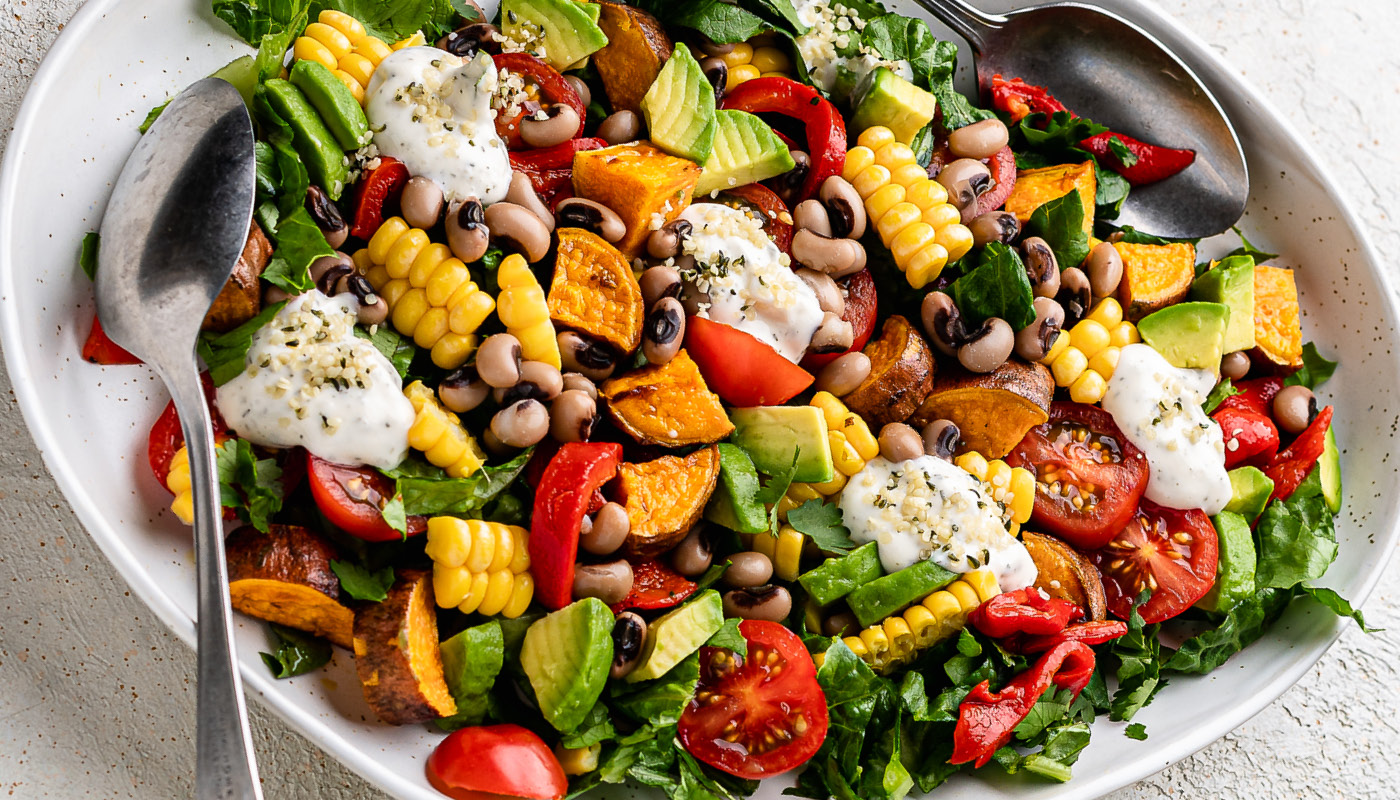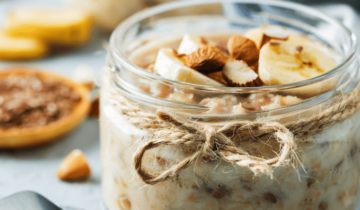Hemp seeds are remarkably nutritious little kernels that come from the hemp plant, Cannabis sativa.
They’re a particularly rich source of healthy fats, fibre, protein, and minerals, and have been used for centuries to prevent certain health issues.
Hemp seeds are also highly versatile and can be eaten raw or cooked, made into milk and cheese, cold-pressed to produce oil, and used for protein powder.
In this article, you’ll discover more about hemp seeds including their health and nutritional benefits, how best to incorporate them into your diet, and whether or not they’re worthy of their superfood reputation.
Nutritional benefits of hemp seeds
Research suggests that hemp seeds’ excellent nutritional profile, with significantly high amounts of vitamins and minerals, are beneficial to our overall health and wellbeing, with a palantra of studies out there to back up these claims.
Below is a list of the top nutritional benefits:
1. Source of plant-based protein
Hemp seeds are an excellent source of plant-based protein that’s easily absorbed by the body. They’re also one of only a few complete protein sources, containing all nine essential amino acids — particularly useful for anyone following a vegetarian or vegan diet. (1)
Hemp seeds trump many of the popular meat sources in terms of protein content. For example:
30 grams (g) of hemp seeds, or about 3 tablespoons, contain 9.5 g of protein, whereas 30 grams of chicken breast only has 5.4 g of protein.
2. High in vitamins & minerals
Hemp seeds boast vast quantities of vitamins and minerals and are particularly abundant in:
- Magnesium
- Vitamin E
- Iron
- Zinc
- Manganese
- B-vitamins
- Phosphorus
- potassium
3. Rich source of plant fibre
Hemp seeds are a great source of fibre — important to regulate blood sugar levels, keep hunger in check, and promote a healthy gut. (2)
Children and adults need at least 25 to 35 grams of fibre per day to stay healthy, but most people only get around 15 grams a day.
Three tablespoons of hemp seeds contain approximately 1.2 g of fibre.
Hemp seeds, especially whole hemp seeds with the shell still intact, are a fantastic source of both soluble and insoluble fibre. (3)
They help add bulk to your stool, making it easier for waste to pass through your gut while also providing beneficial digestive bacteria with the valuable nutrients they need to function properly. (4)
4. High in heart-healthy unsaturated fats
Hemp seeds are a rich source of omega-3 fatty acids, especially alpha-linolenic acid (ALA) a type of polyunsaturated fat. Your body does not make omega-3 fatty acids on its own. They must be absorbed from the diet and are essential for long-term health.
Omega-3s help keep your heart healthy and protect against the risk of strokes. They also help improve your heart health if you already have heart disease. (5)
Hemp seeds are also low in saturated and trans fats. (6)
Health benefits of hemp seeds
Alongside the nutritional benefits associated with daily consumption of hemp seeds, there’s also a wide range of positive health effects as a result of their nutritious compounds.
1. Promotes healthier skin
Hemp seeds have been shown to have a positive effect on skin conditions, particularly problems such as dryness, acne, and those related to the ageing process thanks to their unsaturated fatty acid and high omega-3 content. (7, 8)
2. Contains anti-inflammatory properties
The high concentration of omega-3s along with gamma-linolenic acid (GLA) suggests that hemp seeds may possess a lot of potential anti-inflammatory effects to help manage symptoms of chronic diseases such as type 2 diabetes and heart disease. (9)
Recent studies show that hemp protein products may improve chronic inflammatory states and promote regenerative processes within the human body. (10)
In addition, grossamide, a representative lignanamide found in hemp seed, could also be a potential therapeutic candidate for inhibiting neuroinflammation in neurodegenerative diseases according to a study published in 2017. (11)
3. Beneficial for premenstrual syndrome (PMS) & menopause
A sensitivity to the hormone prolactin has been closely linked to women who suffer from premenstrual syndrome (PMS). (12)
GLA found in hemp seeds produces prostaglandin E1 (an anti-inflammatory, antithrombotic, vasodilator), which reduces the effects of prolactin. (13)
Furthermore, GLA has also been found to help reduce symptoms of menopause by helping to reduce inflammation and regulate hormone imbalances. (14)
4. Boosts brain health
Hemp Hearts are known to improve focus and cognitive functioning. They contain ‘brain-friendly’ antioxidants and are one of the best sources of magnesium in the plant world, helping to support neurotransmitter functions in the body and reduce stress and anxiety. (15,16)
They also contain a large number of amino acids — connected with having a calm and stable mindset.
Again, the high percentage of healthy fats found in hemp seeds is not only important to support healthy membranes in the body but in particular brain function.
Hemp seeds may help with neurological conditions such as:
- Generalised anxiety disorder (GAD)
- Bipolar and mood disorders
- Neurodegenerative disorders (Alzheimer’s & Parkinson’s disease)
5. Supports normal functioning of the immune system
The balance of omega-6 and omega-3 fatty acids (around a 3:1 ratio) found in hemp seeds is considered to be in the optimal range. This is very beneficial for our immune system with studies showing fatty acids have a positive effect on immune response in the body. (17, 18)
A two-tablespoon serving of hemp seeds delivers around 20 per cent of your daily Zinc intake — helping to support the normal function of the immune system and also acts as an antioxidant, helping reduce free radicals that can cause cell damage in your body. (19)
Easy ways to add hemp seeds into your diet
Hemp seeds have a delicious nutty flavour and are a great addition to salads, desserts, yoghurts, cereals, bread and much more.
To add a little nutritious crunch to your meals why not try:
- sprinkling whole or ground seeds on cereal or yoghurt
- baking with hemp seeds and others rich in omega-3s
- adding the seeds to smoothies
- making hemp milk at home using whole seeds
- sprinkling hemp seeds, along with other seeds or nuts, on a salad
In need of some inspiration? Visit our recipes for a wide range of healthy and delicious hemp seed meal ideas.
Hemp seed nutritional profile
Hemp seeds are a wholesome source of protein, fatty acids, and fibre. They also contain plentiful amounts of B-vitamins, vitamin E, and minerals such as calcium, iron, magnesium, potassium, and zinc.
Here’s a quick nutrient breakdown of shelled hemp seed based on a 20-gram serving (2 dessertspoonfuls):
| Energy kcal | 123 kcal |
| Protein | 7 g |
| Carbohydrates | 0.2 g |
| Fat | 10 g |
| Saturated fatty acids | 1.1 g |
| Polyunsaturated fat | 8 g |
| Monounsaturated fat | 1.1 g |
| Omega 3 | 1.7 g |
| Fibre | 0.4 g |
| Sugar | 0.2 g |
| Salt | 0.02 g |
FAQ
1. Does hemp seed have the same effects as marijuana?
Despite being part of the cannabis family, hemp seeds only contain less than 0.02% of the psychoactive compound THC found in marijuana.
2. Do hemp seeds contain CBD?
No, the seeds do not contain any CBD.
3. Are hemp seeds easy to digest?
Hemp seeds are a lot easier on the stomach than many other nuts, seeds, grains, and legumes and the protein in hemp seeds is also easy for most people to digest.
4. Do hemp seeds make you sleepy?
This is a possibility because hemp’s nutrient profile contains a combination of the amino acid tryptophan and vitamin B6 which serve as precursors for melatonin, a hormone that regulates the sleep-wake cycle. (20,21)
However, there’s no clear data to suggest that hemp seeds make you tired and sleepy.
5. Can you eat hemp seeds every day?
Yes, due to their high levels of antioxidants, omega fats, essential vitamins, and minerals, it’s very beneficial to add hemp seeds to your diet every day.
6. How much hemp seed should you eat daily?
1-2 tablespoons a day is enough to meet your dietary requirements.
7. Do you need to soak hemp seeds before eating?
Hemp seeds have no phytic acid and don’t need to be soaked before eating. They can simply be enjoyed straight out of the bag or sprinkled on any dish to gain a boost of nutrition.
To summarise
Hemp seeds are highly nutritious and one of the most powerful foods you can eat. They contain an abundance of beneficial vitamins and minerals and are a great source of plant-based protein.
Hemp is full of Omega-6 and Omega-3 essential fatty acids that contain EPA and DHA which help contribute to the normal function of the heart and have anti-inflammatory benefits. They also contain iron, zinc, and magnesium, and are very easy to digest.
These incredibly versatile little kernels can be added to almost any meal for a healthful kick. Just a couple of spoonfuls are all it takes to enrich your daily diet!
References
- https://www.healthline.com/nutrition/hemp-protein-powder#intro
- https://pubmed.ncbi.nlm.nih.gov/23609775/
- https://pubmed.ncbi.nlm.nih.gov/23609775/
- https://pubmed.ncbi.nlm.nih.gov/19335713/
- https://medlineplus.gov/ency/patientinstructions/000767.htm#:~:text=Omega%2D3s%20help%20keep%20your,get%20them%20from%20your%20diet.
- https://www.ncbi.nlm.nih.gov/pmc/articles/PMC2868018/
- https://pubmed.ncbi.nlm.nih.gov/16130045/#:~:text=Hemp%2Dseed%20oil%20has%20several,related%20to%20the%20aging%20process.
- http://www.skintherapyletter.com/dermatology/diet-change-treatment-skin-disease/
- https://pubmed.ncbi.nlm.nih.gov/17168669/
- https://pubmed.ncbi.nlm.nih.gov/32456009/
- https://pubmed.ncbi.nlm.nih.gov/28224333/
- https://www.ncbi.nlm.nih.gov/pubmed/24678964/
- https://www.sciencedirect.com/topics/medicine-and-dentistry/prostaglandin-e1
- https://www.healthline.com/nutrition/11-natural-menopause-tips
- https://www.ncbi.nlm.nih.gov/pmc/articles/PMC6288804/
- https://www.ncbi.nlm.nih.gov/pmc/articles/PMC6161644/
- https://www.healthline.com/nutrition/optimize-omega-6-omega-3-ratio
- https://www.ncbi.nlm.nih.gov/pubmed/12848277
- https://www.menshealth.com/nutrition/a32064329/foods-high-in-zinc/
- https://www.ncbi.nlm.nih.gov/pmc/articles/PMC3402070/
- https://www.ncbi.nlm.nih.gov/pmc/articles/PMC3402070/figure/F0001/









 No products in the cart.
No products in the cart.